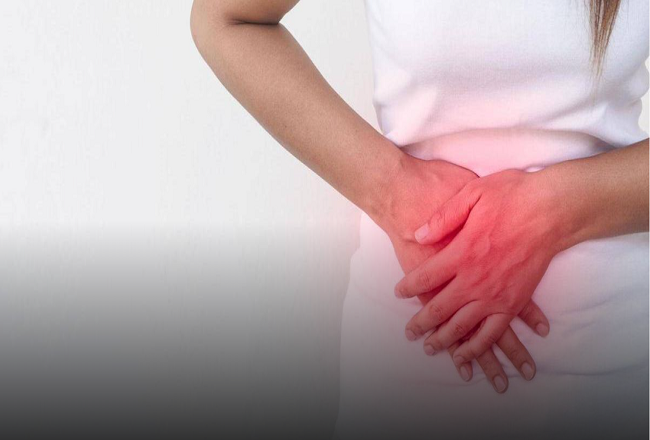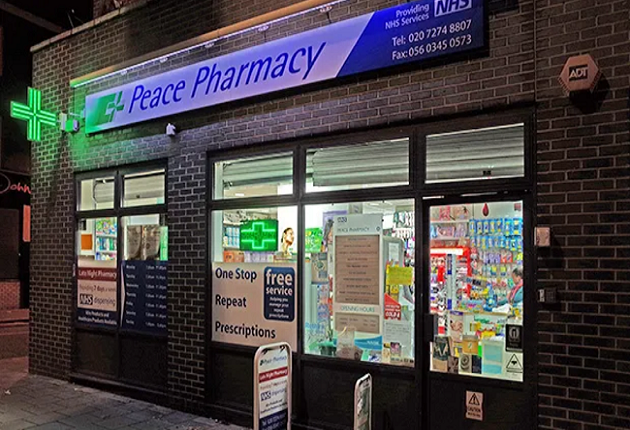“Dolor en la Boca del Estómago” (pain in the pit of the stomach) is a discomfort many people experience, affecting daily life and well-being. This article will explore its causes, how to identify serious symptoms, tips for relief, and strategies for long-term management. By understanding this condition better, you can take proactive steps for lasting comfort.
1. What is Dolor en la Boca del Estómago?
Dolor en la Boca del Estómago describes discomfort in the upper-central abdomen, just below the ribcage. This area, often referred to as the “pit of the stomach,” is vulnerable to pain from various conditions, mainly related to the digestive system.
- Common Symptoms
People may experience pain that feels like:- A burning sensation
- Gnawing or aching
- Sharp, stabbing pain
These symptoms can vary in intensity and duration, depending on the underlying cause.
2. Main Causes of Dolor en la Boca del Estómago
This pain may have several common causes, often linked to digestive health. Here’s a look at some primary culprits:
- Digestive Conditions
Digestive issues such as gastritis, GERD (acid reflux), and indigestion frequently cause discomfort in the upper stomach. Gastritis involves inflammation of the stomach lining, which can be due to bacterial infections, alcohol, certain medications, or stress. - Peptic Ulcers
Ulcers are sores in the lining of the stomach or small intestine, often resulting from H. pylori bacteria or prolonged NSAID use. They tend to cause sharp pain and may worsen on an empty stomach. - Food Sensitivities
Many individuals experience discomfort after consuming foods they’re sensitive to, such as dairy (for those with lactose intolerance) or spicy foods, which can irritate the stomach lining. - Stress-Related Pain
High-stress levels can trigger or worsen stomach pain. The body responds to stress by releasing hormones that can interfere with digestion, sometimes causing bloating or pain.
3. When Should You Be Concerned? Recognizing Serious Symptoms
While Dolor en la Boca del Estómago can often be managed with lifestyle changes, some symptoms may indicate more severe health concerns:
- Severe or Chronic Pain
If pain is intense or does not go away, it may suggest something more serious, such as an ulcer or gallbladder disease. Seek medical advice if pain persists. - Accompanying Symptoms
Symptoms like vomiting, fever, weight loss, or blood in stool warrant immediate medical attention. These may indicate internal bleeding or infections that require prompt treatment. - Pain after Eating Fatty Foods
If you feel pain, especially in the upper right abdomen, after eating fatty meals, this could signal gallbladder issues.
4. Practical Tips for Quick Relief from Dolor en la Boca del Estómago
Finding relief from stomach pain is essential, especially when it disrupts daily life. Here are a few quick solutions:
- Dietary Adjustments
- Identify Trigger Foods: Many foods, including spicy or acidic options, alcohol, and caffeine, can worsen stomach pain.
- Eat Smaller, Frequent Meals: Large meals can strain the digestive system, so smaller portions eaten throughout the day may ease discomfort.
- Home Remedies
For natural relief, consider:- Ginger: Known for its anti-nausea properties, ginger can be helpful for digestive discomfort.
- Chamomile Tea: Chamomile has soothing effects and may help reduce inflammation in the stomach lining.
- Warm Compresses: Applying a warm cloth to the stomach can relax muscles and relieve mild cramping.
- Over-the-Counter Options
Antacids can neutralize stomach acid and relieve heartburn quickly. Acid reducers like H2 blockers can provide more extended relief if acid reflux is a frequent issue. However, it’s wise to consult a doctor before using these remedies long-term.
5. Long-Term Strategies to Prevent Dolor en la Boca del Estómago
For lasting relief, consider these lifestyle changes and strategies to support a healthy digestive system:
- Stress Management
Since stress can worsen stomach issues, managing it is essential:- Mindfulness and Breathing Exercises: Techniques like deep breathing or meditation can help relax your body.
- Physical Activity: Regular exercise can help regulate digestion and reduce stress levels.
- Routine Health Checkups
Regular checkups can help detect conditions like H. pylori infections or gallbladder disease early. Your doctor may recommend tests if you have recurring symptoms to ensure there isn’t an underlying issue. - Limit Use of Irritating Medications
Medications such as NSAIDs can irritate the stomach lining, leading to discomfort or ulcers. Talk to your doctor about alternatives if you need long-term pain relief.
Dolor en la Boca del Estómago Causas Comunes
Dolor en la Boca del Estómago, or pain in the pit of the stomach, can result from various causes, including gastritis, acid reflux, and even stress. This type of discomfort may be sharp, burning, or aching, and understanding the common causes helps in determining effective treatments. Identifying the primary factors behind Dolor en la Boca del Estómago, such as dietary habits, infections, or lifestyle issues, is essential to finding relief. Knowledge about the causes of Dolor en la Boca del Estómago can also help you prevent recurring episodes.
Dolor en la Boca del Estómago Después de Comer
Experiencing Dolor en la Boca del Estómago after eating can be uncomfortable and disrupt daily life. This post-meal discomfort is often due to indigestion, overeating, or consuming trigger foods like spicy or fatty dishes. Dolor en la Boca del Estómago that occurs after meals may signal digestive issues like acid reflux, food intolerances, or even mild gastritis. Recognizing what triggers Dolor en la Boca del Estómago and adjusting your diet can help alleviate this recurring pain. For more information and effective strategies, check out our guide to preventing stomach pain after meals.
Qué Hacer para el Dolor en la Boca del Estómago
When faced with Dolor en la Boca del Estómago, knowing what steps to take for relief can be crucial. Some quick solutions include trying over-the-counter antacids, avoiding heavy meals, and drinking soothing teas like chamomile or peppermint. For ongoing discomfort, consult with a healthcare provider to explore options for long-term management of Dolor en la Boca del Estómago. Addressing lifestyle factors such as stress, diet, and hydration can also reduce episodes of Dolor en la Boca del Estómago. These simple steps can make a big difference. Explore additional methods for relief in our complete stomach pain management guide.
Remedios caseros para dolor en el estómago
For relieving Dolor en la Boca del Estómago, there are several effective remedios caseros that can help alleviate discomfort naturally. Drinking warm chamomile or ginger tea can soothe the stomach lining and reduce inflammation, offering quick relief. Other options include eating small portions of bland foods like plain rice or bananas, which are gentle on the stomach. Avoiding acidic or spicy foods is also essential to prevent aggravating Dolor en la Boca del Estómago. Regularly using these simple remedies can reduce the frequency and intensity of stomach pain episodes.
Cómo aliviar el dolor en el estómago rápidamente
To aliviar el dolor en el estómago rápidamente, several remedies can provide quick relief. Drinking warm water with a pinch of baking soda can neutralize stomach acid, while chamomile tea has soothing properties for digestion. Avoiding foods that trigger discomfort, like spicy or greasy meals, and sitting in an upright position can also reduce pain. If the discomfort persists, over-the-counter antacids or medications designed for acid reflux might help. For long-term relief, consider dietary adjustments and stress management practices to reduce dolor en la boca del estómago.
Dolor en la boca del estómago y náuseas
Dolor en la boca del estómago y náuseas often occur together as symptoms of digestive issues like gastritis, acid reflux, or even food intolerance. The pain in the stomach may feel sharp or cramp-like, while the nausea can cause discomfort or a general feeling of unease. Managing dolor en la boca del estómago with remedies such as drinking ginger or chamomile tea, eating smaller meals, and avoiding trigger foods can help alleviate both symptoms. If the problem persists, it’s important to seek medical advice to rule out more serious conditions.
Por qué duele la boca del estómago en la noche
FAQs about Dolor en la Boca del Estómago
1. What foods should I avoid with Dolor en la Boca del Estómago?
Avoid spicy, acidic, fatty foods, as well as caffeine and alcohol. These can worsen stomach pain.
2. Can Dolor en la Boca del Estómago be a sign of a serious condition?
Yes, chronic pain or symptoms like vomiting, fever, or blood in the stool can signal a serious health issue.
3. How can I get fast relief from stomach pain?
Quick relief can come from antacids, a warm drink like chamomile tea, or ginger for nausea.
4. Can stress cause Dolor en la Boca del Estómago?
Yes, stress can trigger or worsen stomach discomfort by affecting digestive processes.
By following these steps, you can manage and even prevent Dolor en la Boca del Estómago. As always, if symptoms persist or worsen, seek professional advice to ensure proper care.
For related topics, you might enjoy reading some Frases para el Día de la Madre that offer comforting words during times of stress. Find more inspiration here.
You May Also Like:











